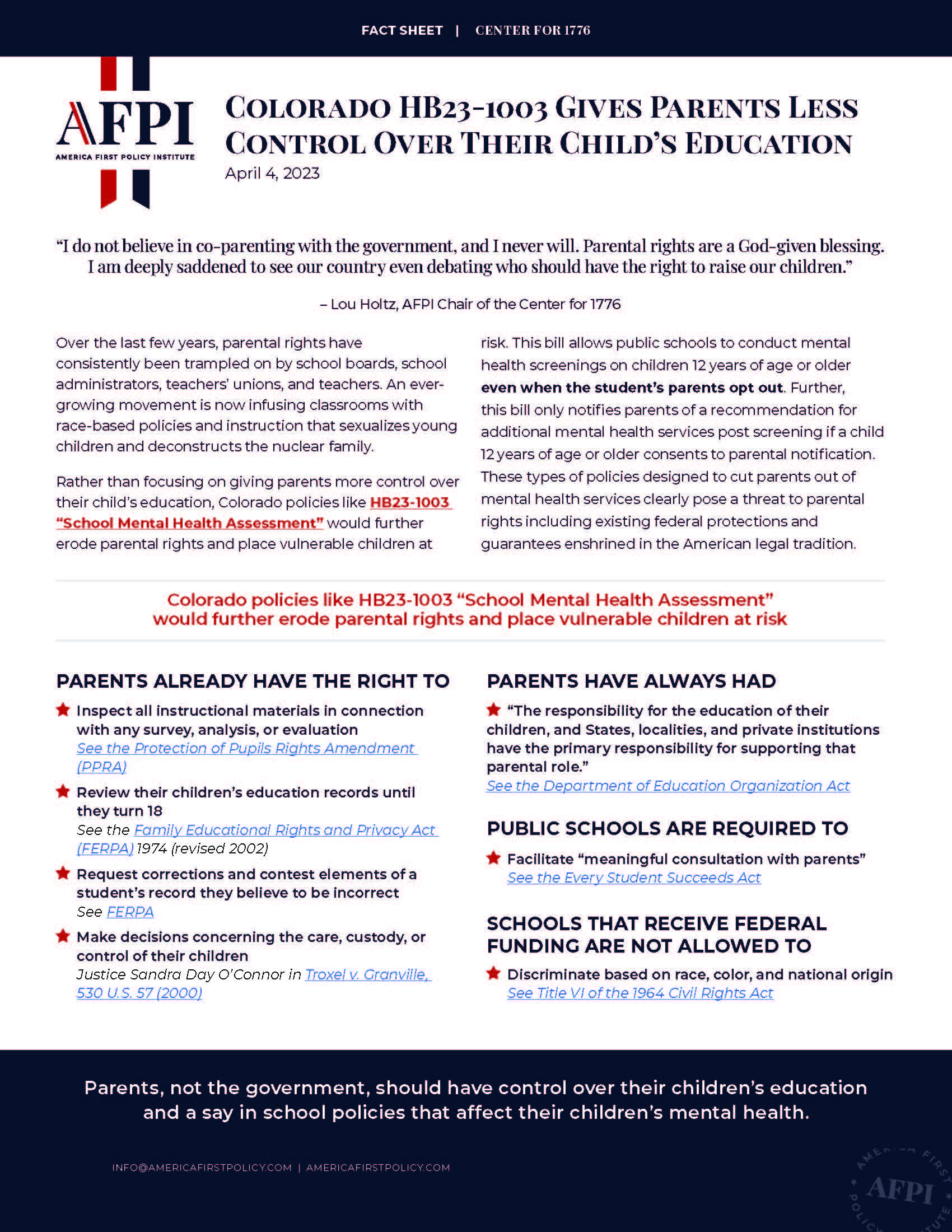FACT SHEET: Colorado HB23-1003 Gives Parents Less Control Over Their Child’s Education
“I do not believe in co-parenting with the government, and I never will. Parental rights are a God-given blessing. I am deeply saddened to see our country even debating who should have the right to raise our children.” – Lou Holtz, AFPI Chair of the Center for 1776
Over the last few years, parental rights have consistently been trampled on by school boards, school administrators, teachers’ unions, and teachers. An evergrowing movement is now infusing classrooms with race-based policies and instruction that sexualizes young children and deconstructs the nuclear family. Rather than focusing on giving parents more control over their child’s education, Colorado policies like HB23-1003 “School Mental Health Assessment” would further erode parental rights and place vulnerable children at risk. This bill allows public schools to conduct mental health screenings on children 12 years of age or older even when the student’s parents opt out. Further, this bill only notifies parents of a recommendation for additional mental health services post screening if a child 12 years of age or older consents to parental notification. These types of policies designed to cut parents out of mental health services clearly pose a threat to parental rights including existing federal protections and guarantees enshrined in the American legal tradition.
Colorado policies like HB23-1003 “School Mental Health Assessment” would further erode parental rights and place vulnerable children at risk
PARENTS ALREADY HAVE THE RIGHT TO
- Inspect all instructional materials in connection with any survey, analysis, or evaluation See the Protection of Pupils Rights Amendment (PPRA)
- Review their children’s education records until they turn 18 See the Family Educational Rights and Privacy Act (FERPA) 1974 (revised 2002)
- Request corrections and contest elements of a student’s record they believe to be incorrect See FERPA
- Make decisions concerning the care, custody, or control of their children Justice Sandra Day O’Connor in Troxel v. Granville, 530 U.S. 57 (2000)
PARENTS HAVE ALWAYS HAD
- “The responsibility for the education of their children, and States, localities, and private institutions have the primary responsibility for supporting that parental role.” See the Department of Education Organization Act
PUBLIC SCHOOLS ARE REQUIRED TO
- Facilitate “meaningful consultation with parents” See the Every Student Succeeds Act
SCHOOLS THAT RECEIVE FEDERAL FUNDING ARE NOT ALLOWED TO
- Discriminate based on race, color, and national origin See Title VI of the 1964 Civil Rights Act
Parents, not the government, should have control over their children’s education and a say in school policies that affect their children’s mental health.
More Resources
July 06, 2023
AFPI Leads the Charge in Most Historic Year for School Choice Progress
At the America First Policy Institute (AFPI), we believe that the transformative progress on school choice will help prepare Americans for the rights and responsibilities of citizenship.
March 24, 2023
FACT SHEET: Give Every Parent More Control Over Their Child’s Education
January 01, 2023
